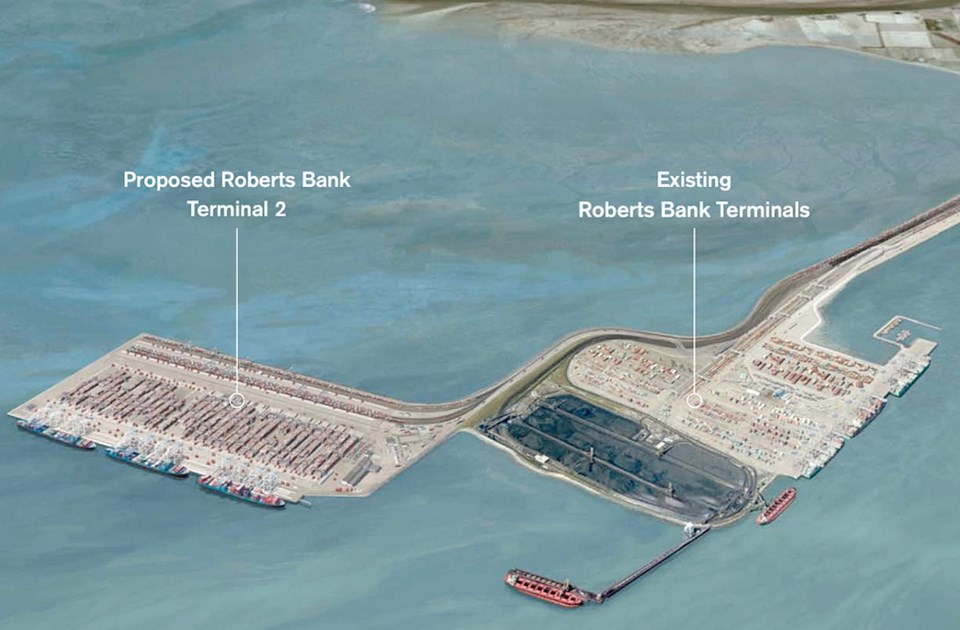The Vancouver Fraser Port Authority is continuing field studies this month as part of ongoing environmental and technical work for the proposed Roberts Bank Terminal 2 (T2) Project.
According to the port authority, the work includes an abiotic parameters study to determine the physical conditions, including temperature and salinity, influencing biofilm presence and distribution at Roberts Bank.
The work also includes juvenile salmon follow-up program data collection and a juvenile Dungeness crab pilot study.
The port authority notes it may also be conducting other fieldwork to assess the suitability of potential offsetting projects at a variety of locations.
The port also notes it will continue to monitor various environmental conditions at Roberts Bank throughout the environmental assessment process for T2.
Meanwhile, the Boundary Bay Conservation Committee (BBCC) recently submitted another report to the federal government and others, including the City of Delta, outlining concerns about the ongoing federal/provincial environmental assessment of the project in the Fraser River estuary.
“The Port of Vancouver has had eight years to present credible, substantive scientific information and mitigation measures and these have not materialized. It is disconcerting that the Port is being permitted to present yet another set of information and mitigation measures when submissions have clearly proven that the residual significant adverse environmental effects of RBT2 cannot be mitigated,” the BBCC states.
The BBCC also notes the federal environment minister doesn’t have full and correct information from a federal review panel report, which failed to report serious omissions and to incorporate evidence-based science from government and independent scientists on key components of the assessment.
Delta council discussed the BBCC’s report earlier this month, agreeing to have staff review it and see if there’s any additional information the city should add to its own submission to the federal government.
The citizens’ group Against Port Expansion (APE) also continues its push for the federal government to turn down the project, recently reiterating a series of environmental concerns when it comes to the impacts of T2.
A decision was expected by the federal government last year but that was paused last summer as additional information had been requested from the port authority.
The port has been working on providing that additional information and hopes to receive a decision later this year.
At a presentation at Delta council this spring, Tom Corsie, the port’s vice-president of real estate, and Duncan Wilson, vice-president of environment, community and government affairs, described how the project is needed to meet future container capacity demand.
They also detailed extensive environmental mitigation measures that would be part of the project including the creation of new areas for biofilm, if needed, for feeding migratory shorebirds.
The T2 project is a proposed new three-berth container terminal, which would be built on a man-made island at Roberts Bank, adjacent to the existing container port facility.
It would provide 2.4 million TEUs (20-foot-equivalent units) of additional container capacity annually.
An earlier City of Delta report notes that although Delta has requested that the project not be approved, civic staff are providing feedback on draft conditions of approval to ensure the city’s concerns are addressed as fully as possible, should the project be approved.



